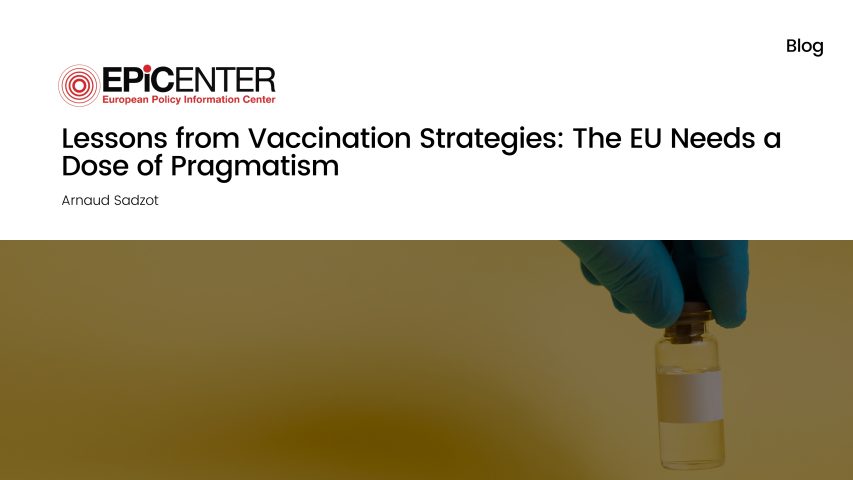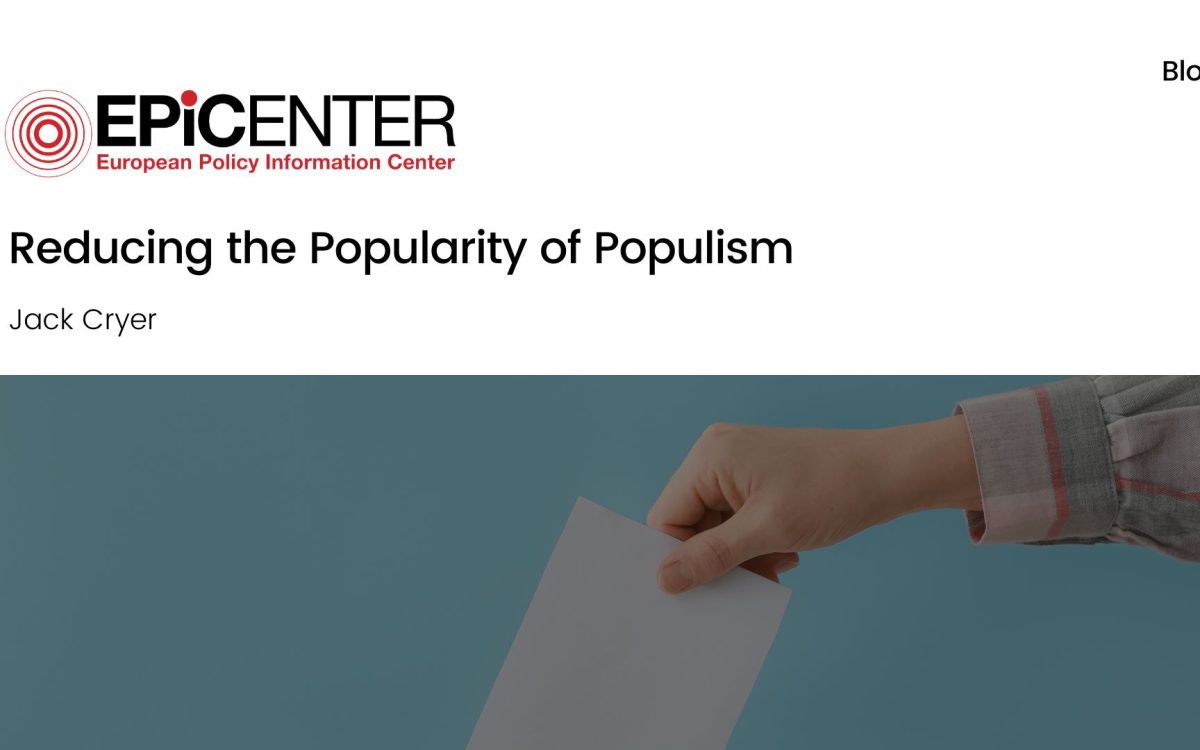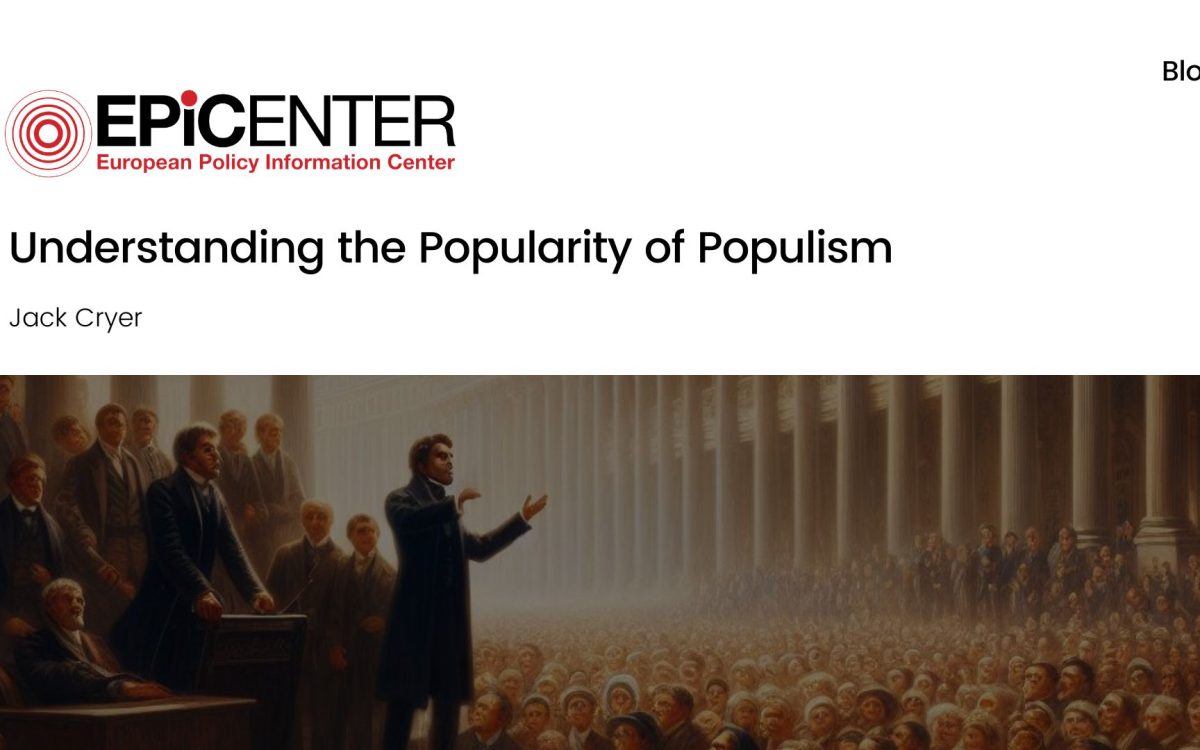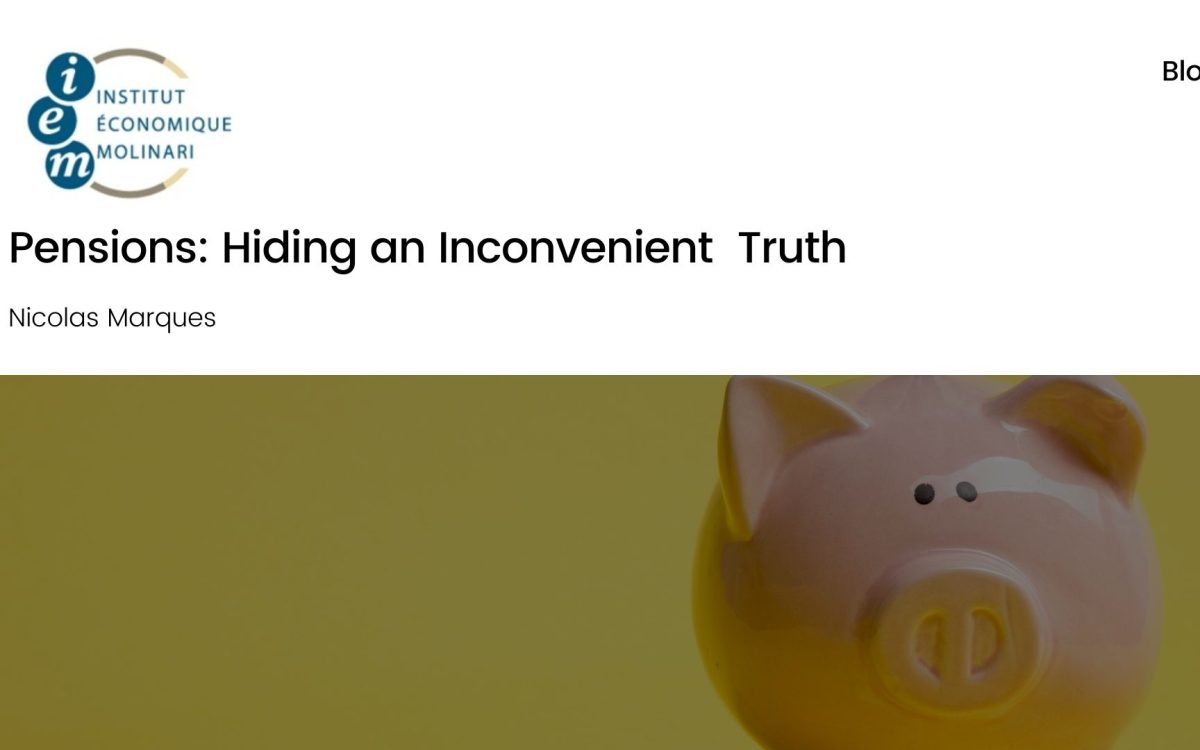Lessons From Vaccination Strategies: the EU Needs a Dose of Pragmatism

Lessons From Vaccination Strategies: the EU Needs a Dose of Pragmatism
Arnaud Sadzot // 24 March 2021
While the EU has been criticised for its lack of preparation, guidance, and strong unified response amidst the SARS-CoV-2 pandemic, the arrival of vaccines offered Brussels yet another chance to prove the benefits of close cooperation and demonstrate leadership. Although Member States willingly delegated the procurement task to the Commission, the EU fiasco further showcased the Union’s decision-making struggle, in contrast with the successful vaccination strategies of the UK or Israel. Moreover, the Union witnessed a wide divergence in vaccination policies amongst its Member States, with some countries performing better than their neighbours, notably due to bilateral deals with countries such as Russia or China. This freewheeling warns Brussels that if it wants to preserve some form of leadership credibility, the EU should focus on promoting policies that work.
The UK offered a striking example of the importance of preparation and quick reaction in times of crisis. By the end of 2019, the Department of Health and Social Care was envisaging a mass vaccination campaign, and Oxford scientists started meeting in January 2020 to develop a vaccine. The creation of a ‘Vaccine Taskforce’ with the appointment of the venture capitalist Kate Bingham at its head allowed the country to rapidly secure vaccine procurement. When the UK became the first country to approve a COVID-19 vaccine in December 2020, the government had already signed contracts with AstraZeneca and Pfizer six months in advance. Israel’s success is also partly explained by its early deals with AstraZeneca, Pfizer, and Moderna long before the country’s regulators had approved the vaccines.
The EU prioritised safety and liability talks with the pharmaceutical companies over rapid procurement while the disease kept on spreading. Australia’s regulator also took months to approve Pfizer and AstraZeneca’s vaccines while both products were already being implemented in other countries, which ultimately delayed its vaccination rollout. Despite the EU’s procurement delay, Denmark’s efficient distribution in the early phase proves that having a highly digitalised society like Israel is an incomparable advantage when managing the vaccination rollout. This might be a wake-up call for countries struggling with paper administration or with decentralised and bug-ridden databases. Additionally, Denmark’s strategy to administer all its vaccines as first doses to increase the immunised proportion of its population invites policy makers abroad to rethink the balance between speed and safety.
Moreover, the efficiency of a ‘no regret’ approach has been illustrated by the bold reaction of Hungary. Also a victim of the EU’s slow rollout, the country decided to diversify its vaccines’ sources by acquiring the Chinese and the Russian vaccines that have not yet been approved by the European Medicines Agency (EMA). While bypassing the Agency’s evaluation has been perceived as another Hungarian blow to the Union’s spirit, it is not inconsistent with the EU guidelines. Czechia and Slovakia also followed this avant-gardist move which further confirmed the EMA’s slowness in approving foreign vaccines. Furthermore, the agency’s over-cautious tone put it in an uncomfortable geopolitical position. The vaccine diversification of Israel and the UAE backs up the important lesson that in times of crisis, geopolitical concerns should be put aside and every option should be considered, regardless of its origins.
A possible solution could reside in the establishment of Mutual Recognition Agreements (MRAs) between high-income countries for vaccines. The European Commission, with the advice of the EMA, has the power to negotiate such MRAs, and has already signed several on human and veterinary medicines, notably with Australia, Switzerland, and New Zealand. Hypothetical pre-existing MRAs between the EU and Russia or China –or third countries whose regulators approved their vaccines– could have saved precious time by facilitating the approval, import, and distribution processes.
Following a similar logic, Hungary passed a revolutionary amendment to a decree of emergency recognition to allow automatic approval of any vaccine used or authorised in a minimum of three states –including at least one EU member state or candidate country– and already inoculated into at least one million people. This decision could inspire other countries to consider equally bold solutions.
Although there is no one-size-fits-all design for a successful vaccination strategy, elements of best practice start to emerge. Should the world face a new pandemic, countries will have to prioritise speed and coordination over bureaucratic hurdles, geopolitical concerns, or protectionism. While the creation of a European Health Emergency Preparedness and Response Authority could facilitate the EU’s response capability in the future, it will only be efficient if the EU learns from best practices around the world and implements them at home.
EPICENTER publications and contributions from our member think tanks are designed to promote the discussion of economic issues and the role of markets in solving economic and social problems. As with all EPICENTER publications, the views expressed here are those of the author and not EPICENTER or its member think tanks (which have no corporate view).



